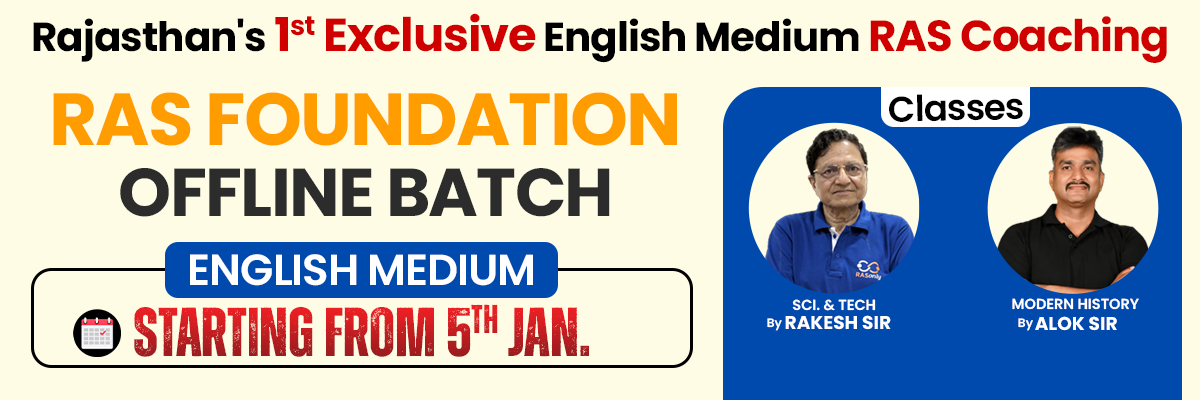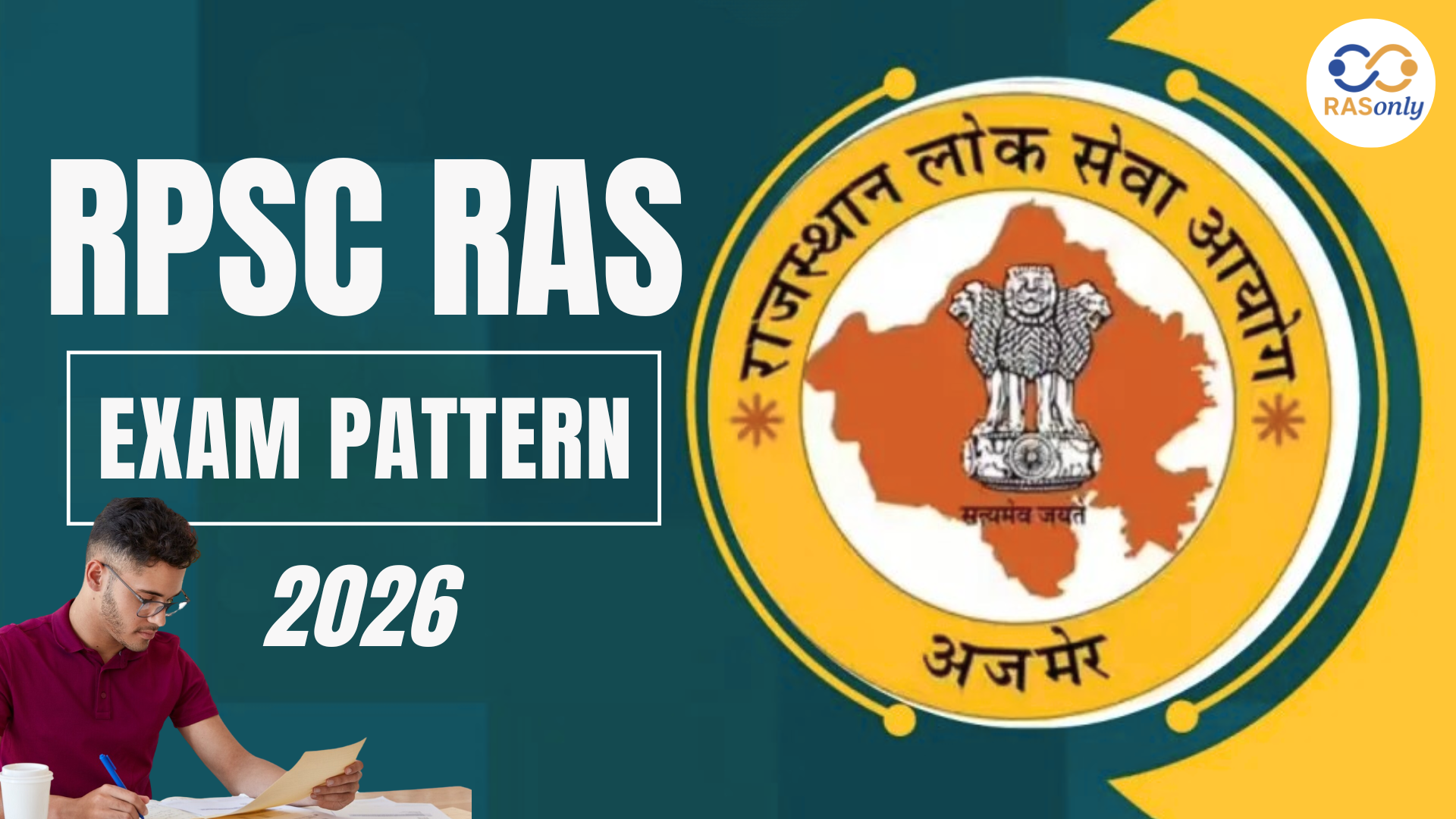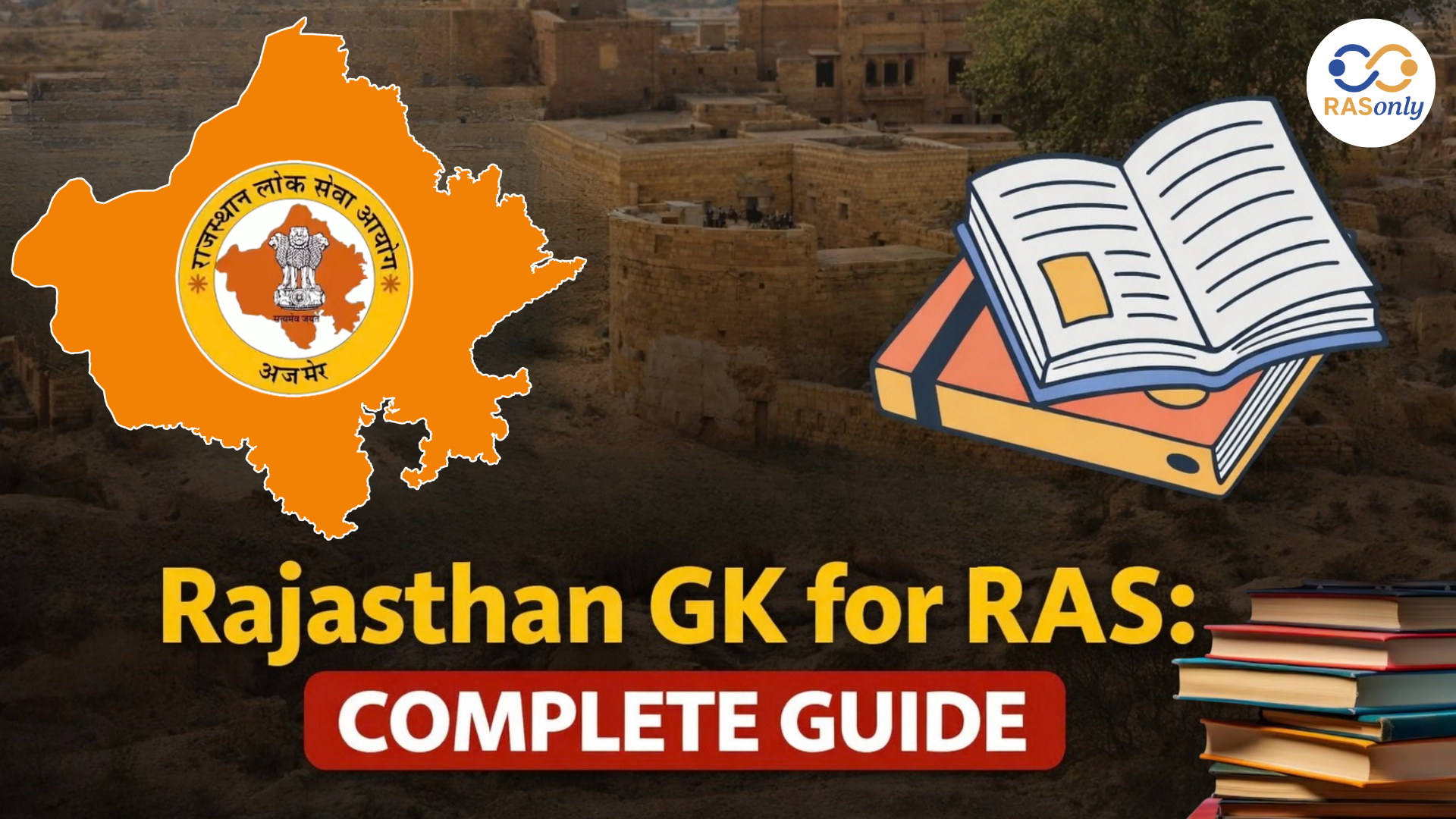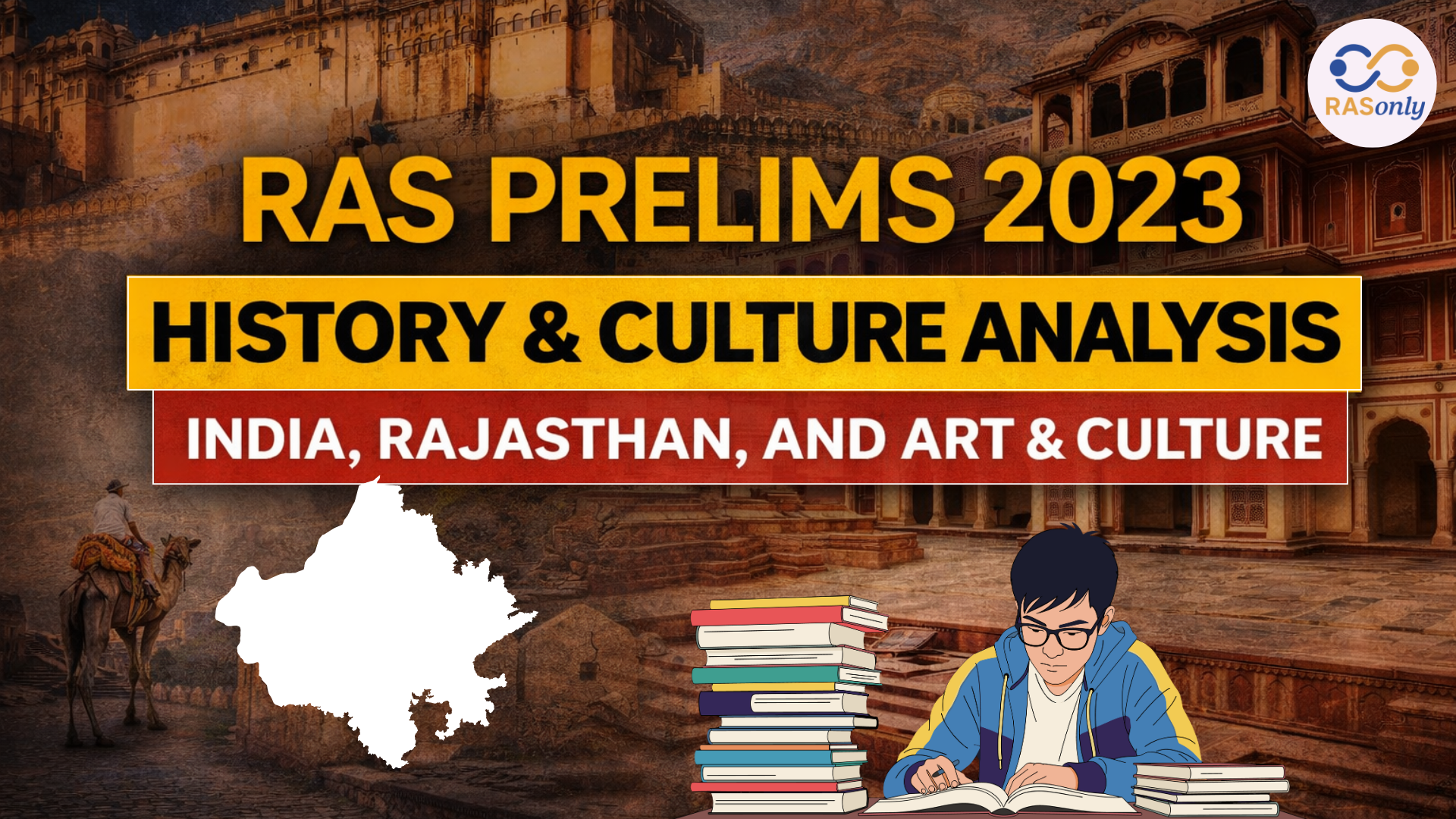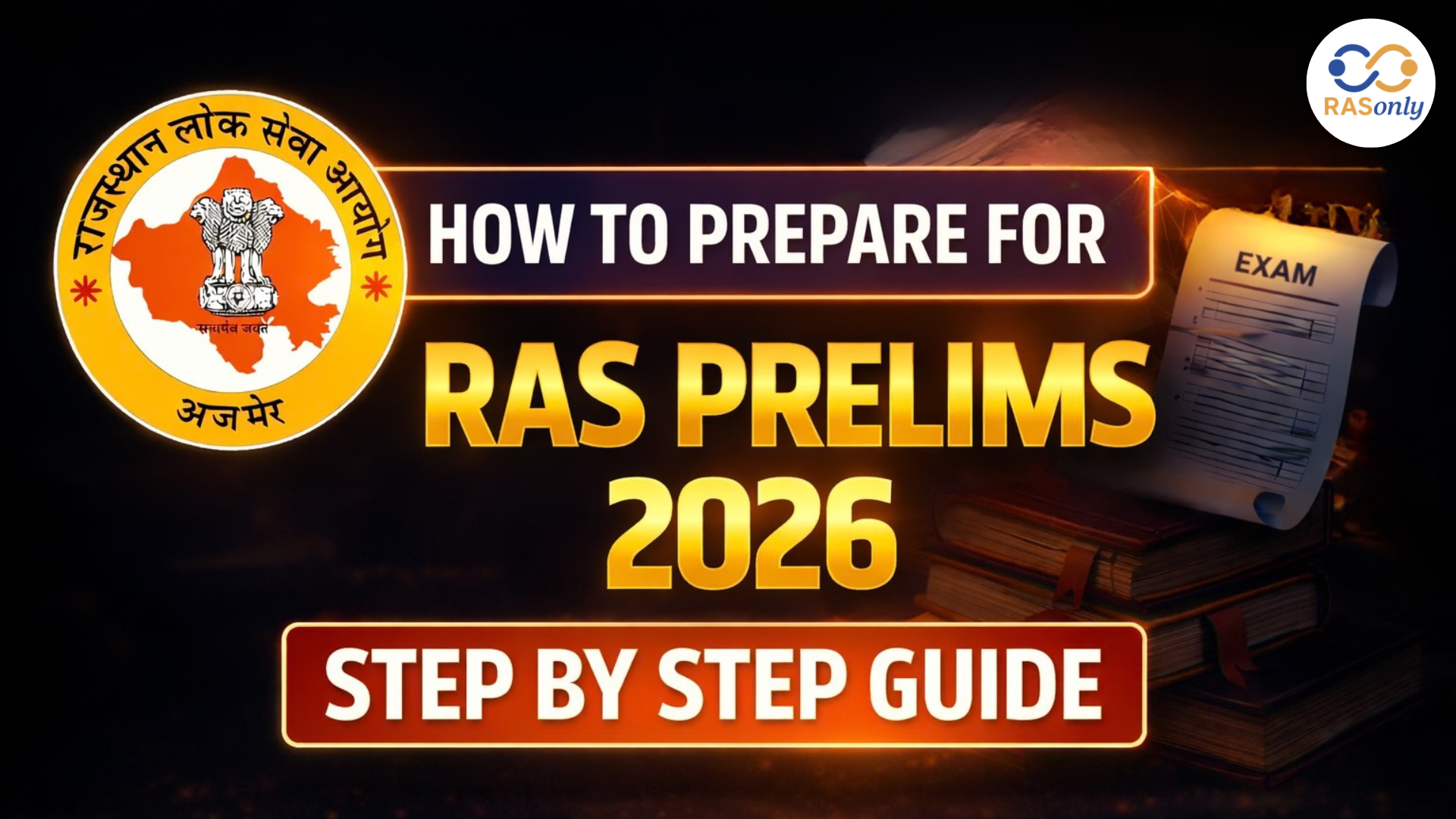RPSC RAS 2026 Subject Wise Exam Pattern for Prelims, Mains & Interview Details
- >
- RAS Preparation Resources
- >
- Current Geopolitical Problems in India
Current Geopolitical Problems in India

Get in Touch with RASonly!

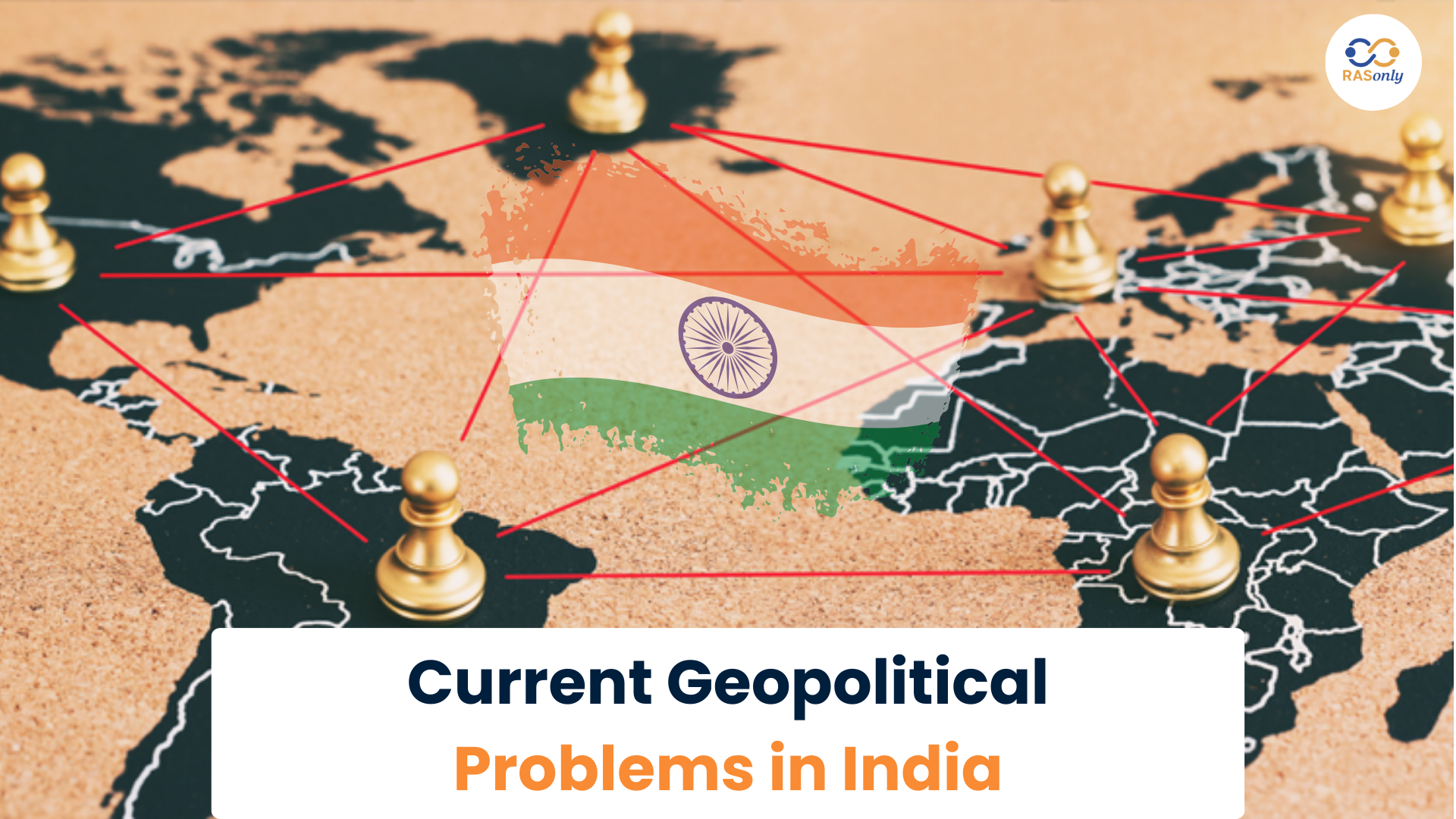
The game of Indian diplomacy in 2025 is a rope walking between climate objectives, security challenges as well as economic aspirations without being strategically aligned. The world today can see India as participating in every pillar of comprehensive national power, be it technology, defence, climate leadership and more. Technology leadership, energy security and climate diplomacy have now become closely interwoven in India in its external interactions. New security threats, internal growth, stability in the region are some of the other complications to India foreign policy options. The emphasis by India is on a fine balance of seeking to strengthen the existing alliances as it regards the new global alliances without becoming subjugated to nations.
Key Highlights for RAS Mains
- India shaped Indian foreign policy owing to the unstable international power balances and increased regional complexities.
- The coming of Trump in the U.S, unbalanced Europe, and expanding influence of China and Russia negate strategic autonomy of India.
Changing Global Geopolitics
- Stepping out in a Changing World Order
- India will be subjected to a rebalanced world after Trump returns after Trump and instabilities in Europe.
- It has to be able to remain non-aligned and establish more intimate connections with new and established powers.
- Peacemaker in International Issues
- India is also being cautious towards getting involved in conflicts such as Ukraine and West Asia in a strategic manner.
- Its peculiarities in its relations with the West and Russia make it able to conduct balanced diplomacy.
- The Expanded Strategic Alliances
- Relations with the U.S are growing in defence and technology.
- At the same time, India is cultivating relations with Africa and Latin America to diversify the influence.
Neighborhood Diplomacy of India
- Shifts in South Asia
- Synonymous shifts in politics in Bombay and Nepal tend to draw the region on the side of China.
- India experiences diplomatic rivalry in its conventional lever of influence.
- Chinese and Pakistan
- As Chinese talks go on, mistrust is the order of the day after Galwan.
- In the case of Pakistan, the relations are not intense because of terrorism and Kashmir.
- Regional Instability
- Strategic issues have the addition of anti-India sentiment in Maldives and Chinese infrastructure development.
- India needs to strengthen its development diplomacy in order to reassert power.
Energy security and Climate Diplomacy
- Shift to Clean energy
- India is aiming at renewable energy with issues of tech gaps, lack of land and problems of investments.
- Solar and wind are being considered with hydrogen, nuclear and clean coal.
- Geopolitical Risk of Energy
- Energy supply chains are threatened by conflict in Europe and the Middle East.
- Essential are strategic reserves and diversification (e.g. INSTC).
- International Energy Partners
- It as well cooperates with the U.S., Russia, and Gulf countries to help transfer the technology and provide consistent supplies.
- Energy Strategy is linked with the Indian economic vision of developing a $4 trillion economy in the year 2027.
Economic Diplomacy trade
- Western Engagements
- The trade of India and the U.S as well as the EU is wary due to tariff concerns.
- The PLI scheme comes as an attempt to provide an increase in manufacturing and import-reduction.
- New Frontiers: Africa and Latin America
- India views these areas as untapped potential to join the pharma exporter, agriculture exporter and technology exporter fields.
- There are new trade agreements and investment forums to be discussed.
- The balancing and counter-balancing of China and Russia
- India trades with China heavily but unbalanced and the relationships have been characterised by tensions along the borders.
- Russia is one of the major energy and defense partners; imports of oil at reduced prices are ongoing.
Non-Alignment Strategy Autonomy
- Post-Cold war Non-Alignment
- India has been sticking to its classical policy that is revamped considering the multipolar world.
- The flexibility of relations gives India an opportunity to regulate the global problems itself.
- Power Balancing
- India holds good relationships with the U.S, Russia and China.
- The independence of strategy manifests itself in economic, cultural and defensive diplomacy.
- Speech in Multilateral Forms
- Participant of UN, G20, BRICS and climate summits.
- India has been utilizing these platforms to promote a global governance regime that is fair to all global citizens.
Technology, Cybersecurity and Innovation
- Digital Diplomacy
- Now digital India becomes a political instrument, a way to encourage technical cooperation on an international platform.
- India shapes international standards of information, artificial intelligence and digitization.
- Cybersecurity Alliances
- As the cyber threats increase, India allies with other nations such as the U.S. and Japan in the use of mutual defense systems.
- The safety of the economy and infrastructure is dependent on cyber diplomacy.
- Innovation Leadership
- India is putting money in R&D, AI, quantum computers, and startups.
- Tech sovereignty” is on its way to becoming a strategic objective in the foreign and domestic policies.
Cultural Diplomacy Soft Power
- Diffusion of the Indian Culture
- The diaspora, Bollywood, cuisine, and yoga propagate India in the foreign eyes.
- Cultural diplomacy strengthens the connectivity between the people and fosters the India values to the whole world.
- Humanitarian Leadership
- India actively responds in Asia and Africa in disaster relief and humanitarian assistance.
- Such initiatives raise goodwill and help to strengthen the image of India as a responsible power.
- International Soft Power Impulse
- The soft power of India focuses on development, harmony and international equity.
- International cultural contacts and meetings assist in enhancing the role of India.
Defense and security policy
- Military Modernization
- India is upgrading its military force with new jets and submarines and destroyed defensive infrastructures to brace against cyber-attacks.
- Emphasis on self-reliance and indigenization of the defense technology.
- Defense Partnerships
- The production is both joint and the transfers of technologies with the U.S., France, and Israel.
- The areas of focus are missiles, AI systems and surveillance.
- Addressing the Non-Traditional Threats
- There are shifting tactics on how to fight terrorism and cyber warfare as well as fighting biothreats.
- There must be global coordination and inter-agency efforts.
Climate Leadership Environmental Diplomacy
- Engagement on Global Climate
- India is one of the front line voices in climate negotiation after COP30.
- It promotes climate justice and developing countries' finances.
- Lay emphasis on Sustainability
- Solar, wind, EV, and green hydrogen projects are expanding.
- Major objectives include sustaining cities, saving water and forest cover.
- Global Environmental Agreements.
- India participates in important agreements on clean technology, biodiversity and green finance.
- There is increasing collaboration with EU, ASEAN countries and African countries.
Domestic Challenges & World Impact
- Bridging Inequality
- There is still growth but still exists inequality in terms of health, education, and employment.
- Diversity policies are necessary with respect to stability and image in the world.
- Domestic Security Problems
- There are still terrorism threats; insurgency or cybercrimes.
- Efficient foreign policy needs powerful domestic security.
- Domestic Global Policy Connection
- Global spillover: Trade, climatic and electronic policies.
- The national decisions within the country define the international position of India today.
Conclusion for RPSC
The Indian foreign policy 2025 is one of resilience, flexibility and vision. Prudent diplomacy and a knack of strategy will help balance great power rivalry, local instability, and domestic needs. India is on its way to influence conversations worldwide by fostering diverse relationships, taking the front in climate change and technological innovation, and defending national interests. India has a firm determination of independence and growth and this has seen India not only being a responder to developments in the world, but as a controller. The next few years will challenge this intent, but it will also provide India with a golden chance to be in the lead, as one of the leading powers of the world.
Post Category
- RAS Salary
- Result
- RAS Admit Card
- RAS Job
- RAS Cutoff
- Preparation Tips
- RAS Answer Key
- RAS Exam Analysis
- RAS Syllabus
- RAS Previous Year Papers
- RPSC RAS Exam Pattern
- RAS Interview
- RAS Mains Exam Date
- RAS Vacancy
- RAS Test Series
- RAS Best Books
- RAS Preparation Resources
- RAS Coaching Centre
- History
- Polity
- Geography
- Economics
- Science
- Art and Culture
- RPSC RAS Application Form
- RPSC RAS Notification
RASonly Interview Guidance Program

Mr. Ashok Jain
Ex-Chief Secretary Govt of Rajasthan
- IAS officer of the 1981 batch, Rajasthan cadre.
- Passionate about mentoring the next generation of RAS officers with real-world insights.
- Got retired in Dec 2017 from the post of Chief Secretary of the state of Rajasthan.

Mr. Guru Charan Rai
Ex-ASP / SP in Jaisalmer
- Guru Charan Rai, IPS (Retd), retired as Inspector General of Police (Security), Rajasthan, Jaipur in 2017.
- Served as ASP and SP in Jaisalmer, Nagaur, Sri Ganganagar, Sawai Madhopur, Dausa, Sikar, and Karauli.
- He also held key positions as DIGP and IGP in the Law and Order division.

Mr. Rakesh Verma
Ex-IAS Officer, B.Tech, MBA, and M.A. (Economics)
- IAS officer of the 1981 batch and retired in Chief Secretary Rank.
- Civil servant of high repute and vast experience.
- Has been teaching UPSC CSE subjects for the last six years.
Related Post
Daily Current Affairs for RAS Exam Preparation 2026
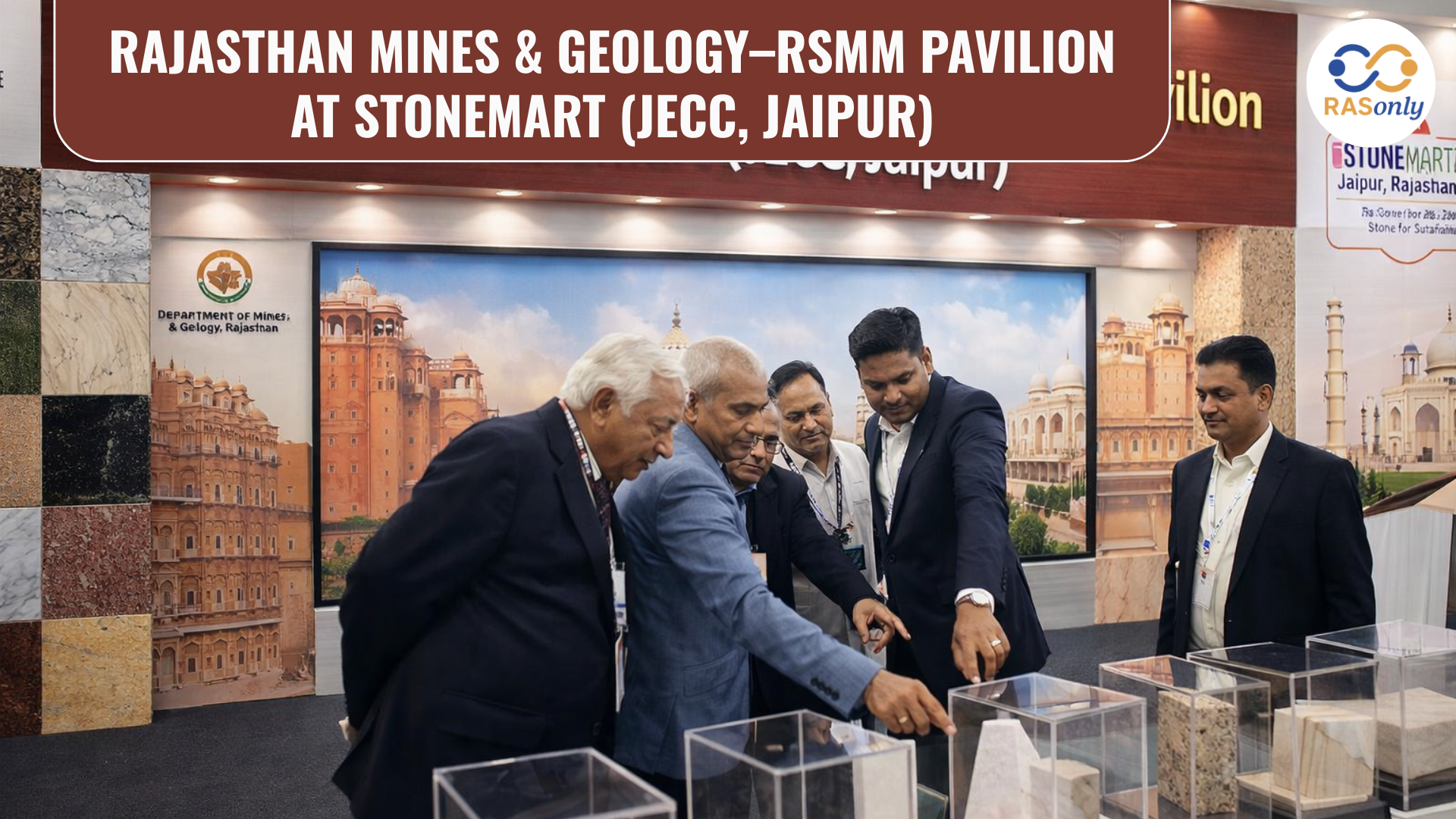
Rajasthan Pavilion Shines at Stone Mart Jaipur 2026
February 07, 2026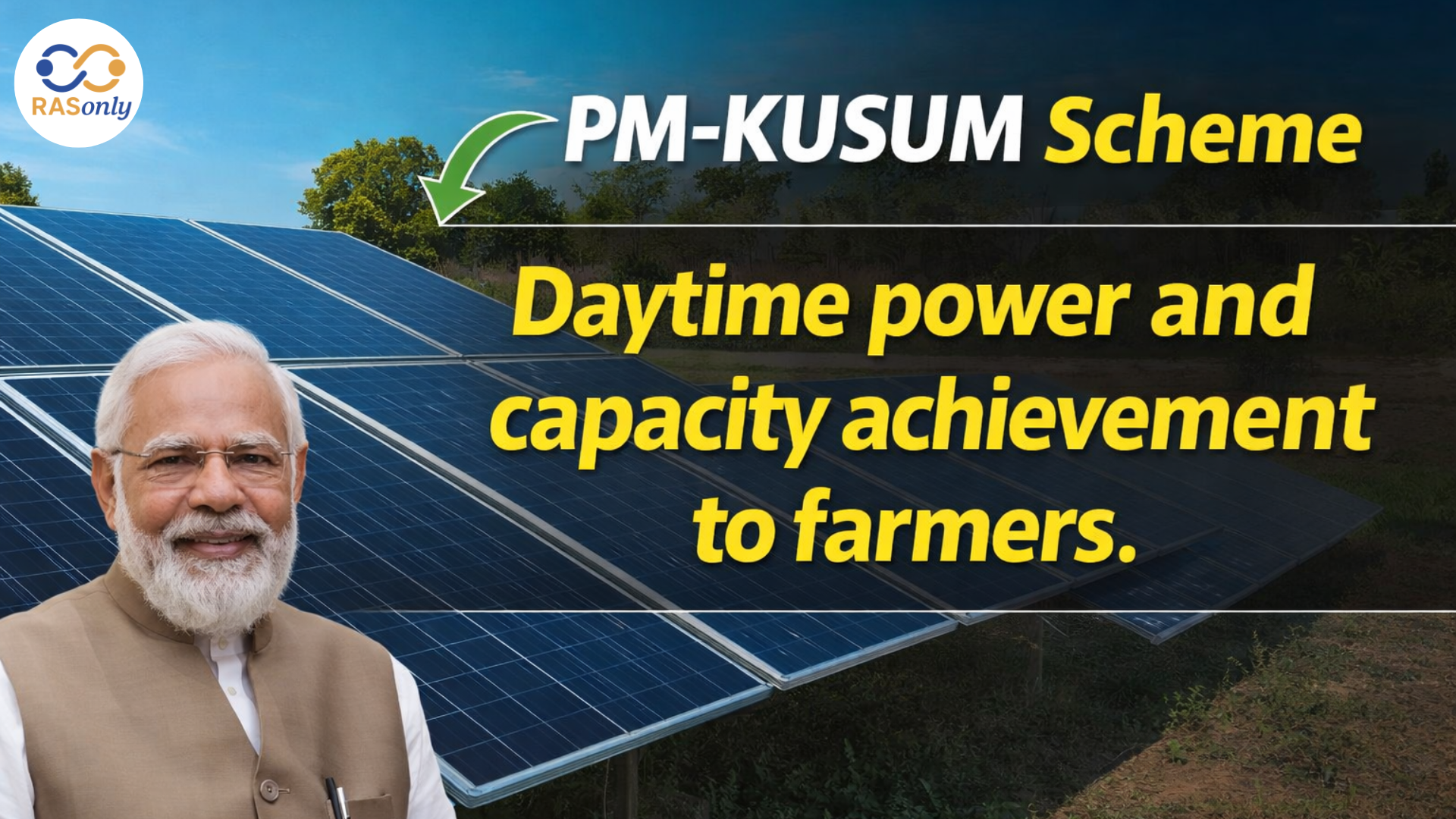
Rajasthan Achieves 3,000 MW Under PM-KUSUM Scheme
February 07, 2026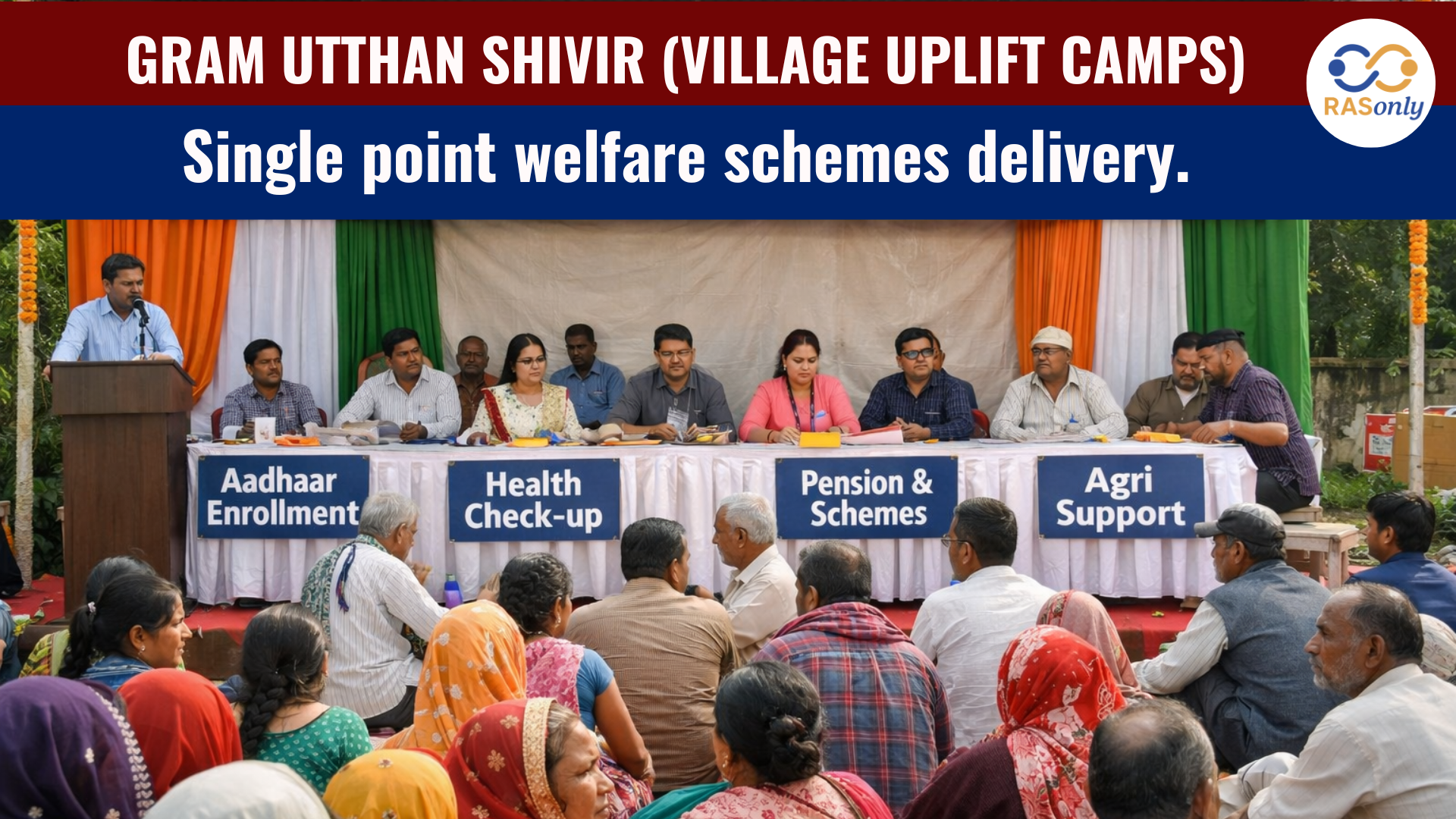
Gram Utthan Shivirs Strengthen Rural Governance in Rajasthan
February 07, 2026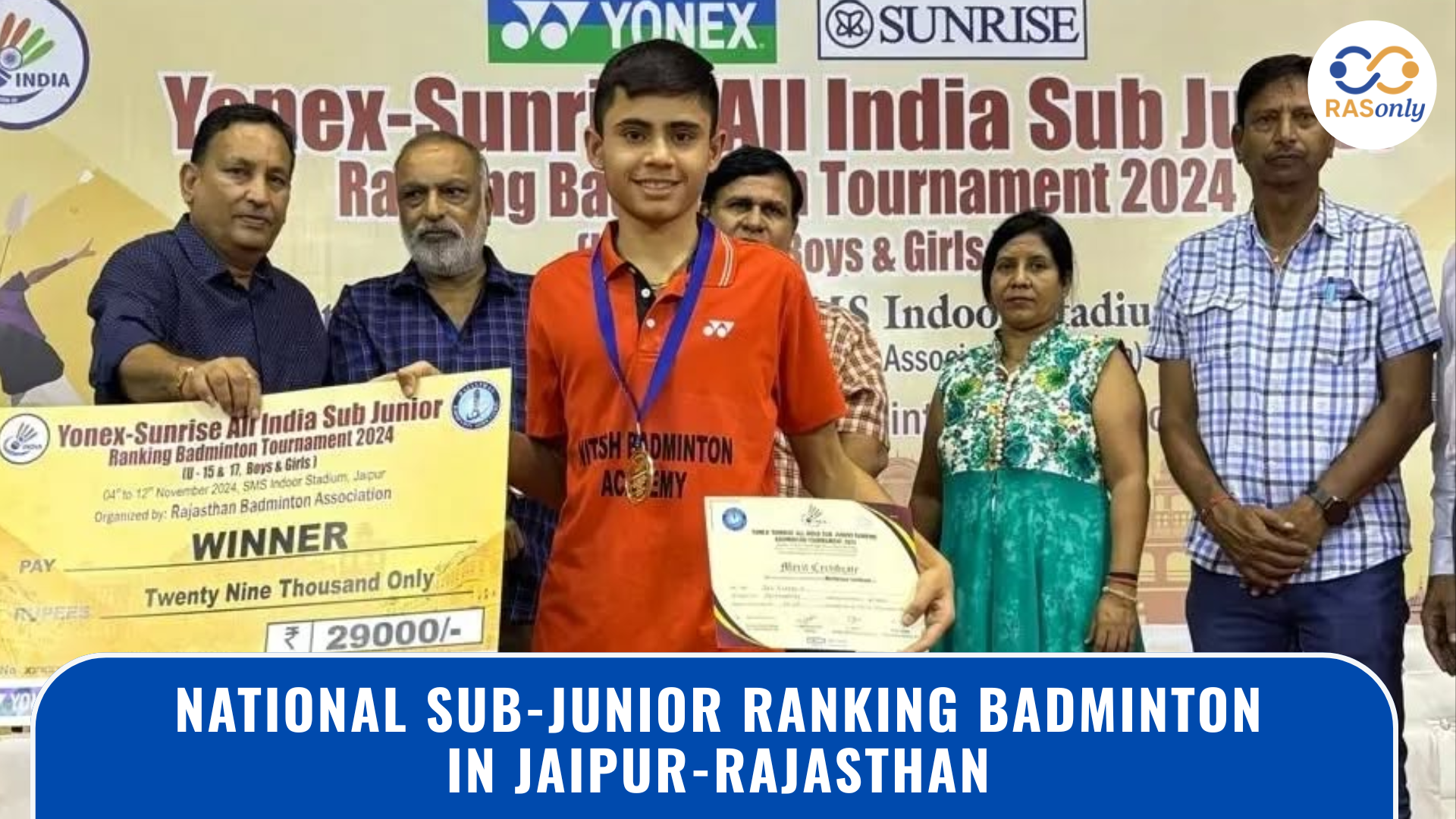
Jaipur Badminton: 72-Minute U-15 Final Creates Record
February 06, 2026👉🏻 Register Today to Join Classes! 👍🏻
- Team RASOnly -
🎯 Benefits of RASOnly Coaching:
- ✅ 1:1 Mentorship with RAS Officers
- ✅ Experienced and Expert Faculty
- ✅ Free Library Access
- ✅ Daily Minimum 4 Hours Must
- ✅ Comprehensive Study Material
- ✅ Regular Tests & Performance Analysis
- ✅ Personalized Guidance & Doubt Solving
- ✅ Online & Offline Class Options
- ✅ Affordable Fees with Quality Education
Key Highlights:
- 👉🏻 3-Day Refund Policy
- 👉🏻 New Batch Starting from 04 August
- 👉🏻 Registration Amount: Only ₹1000




